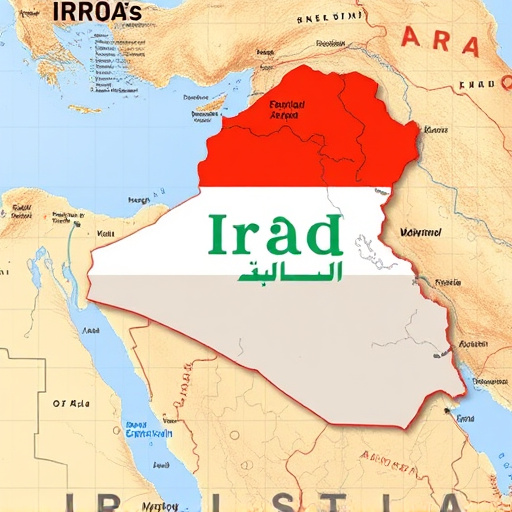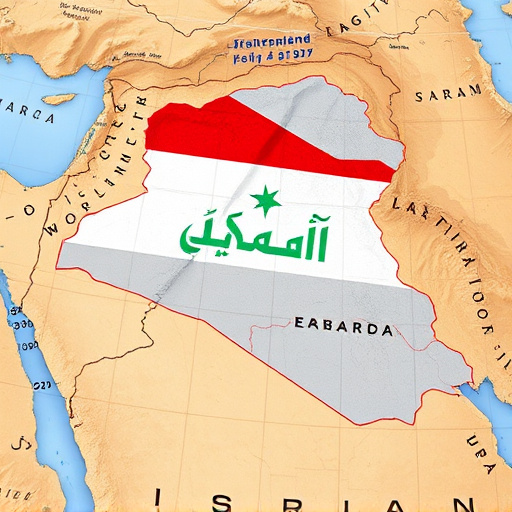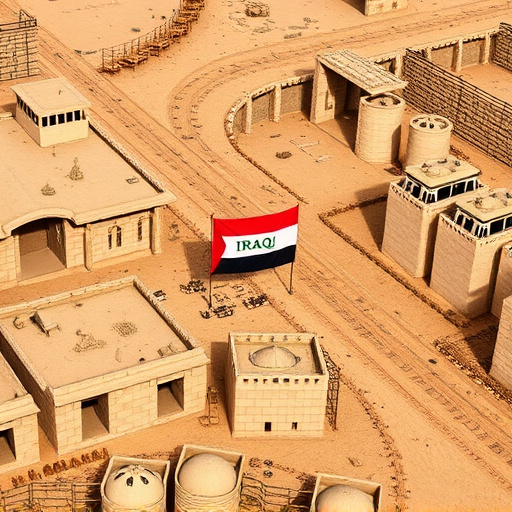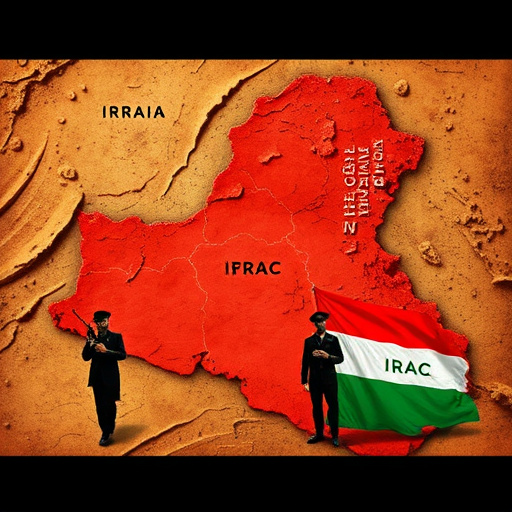Iraq's diverse sports culture thrives despite war and corruption, with traditional games like soccer gaining popularity among varied communities. The country's rich athletic heritage shines through in international success across sports. However, water quality faces severe challenges due to historical conflicts, political instability, and geographical features, hindering sustainable practices and requiring a multi-faceted approach for improvement. International volunteers can contribute significantly to Iraq's post-war reconstruction by focusing on water infrastructure and promoting sustainable solutions.
In Iraq, sports and water quality are two vital aspects that reflect the country’s complex landscape. While football (soccer) and athletics dominate the sporting scene, providing cultural insights into Iraqi society, the nation faces significant water quality issues due to environmental degradation, infrastructure shortages, and political instability. This article explores these dual challenges, focusing on popular sports and delving into the water crisis, its causes, and potential solutions tailored to Iraq’s unique context.
- Popular Sports in Iraq: A Cultural Insight
- Water Quality Concerns Across the Country
- Iraqi Waters: Challenges and Solutions
- Enhancing Water Management in Iraq
Popular Sports in Iraq: A Cultural Insight

In Iraq, sports play a significant role in the cultural fabric and serve as a source of unity among diverse communities. Traditional games like soccer (known locally as kora) enjoy immense popularity due to its accessibility and dynamic nature. This passion for football is evident in the enthusiasm of local fans and the country’s participation in international competitions. Additionally, Iraqi athletes excel in sports such as athletics, wrestling, and traditional martial arts like Krav Maga, reflecting a rich athletic heritage.
Beyond these popular choices, Iraq’s unique geography also fosters activities like water sports along its rivers and lakes. However, the consequences of the Iraq War and how corruption impacts business have had mixed effects on the country’s sporting infrastructure. Despite these challenges, Iraqi athletes continue to make their mark both locally and internationally. To gain a deeper understanding of Iraq’s vibrant sporting scene, visit us at what are the main ethnic groups in Iraq?
Water Quality Concerns Across the Country

Iraq’s water quality has been a persistent concern due to various environmental and political factors. The country’s geography, with its rivers, lakes, and arid regions, presents unique challenges in maintaining clean and safe drinking water. Historical events, such as the history of Iraq and conflicts, have also left a mark on the nation’s water infrastructure.
The geography of Iraq, surrounded by neighboring countries like Syria, Turkey, and Kuwait, influences its water resources. The Tigris and Euphrates rivers are vital to the country’s agriculture and economy but face issues with pollution and overuse. According to recent reports, industrial waste disposal, agricultural runoff, and inadequate sewage treatment plants contribute to water contamination. Moreover, the best time to visit Iraq for pleasant weather can also be a factor in tourism-related strain on local water supplies. Given the current political climate and corruption concerns, where how does corruption impact business in Iraq?, efforts to address these water quality issues are ongoing, aiming to ensure a sustainable future for both its citizens and visitors.
Iraqi Waters: Challenges and Solutions

Iraq’s waters face significant challenges, largely due to historical political instability and corruption. How does corruption impact business in Iraq? This has hindered proper management and infrastructure development, leading to water pollution and a decline in water quality. The absence of robust governance has resulted in inadequate treatment facilities and unregulated industrial waste disposal, contaminating crucial sources like the Tigris and Euphrates rivers. These rivers, which flow through the heart of ancient Iraq, once thrived with rich ecosystems but now struggle due to these issues.
Addressing these problems requires a multi-faceted approach. The best time to visit Iraq for weather considerations could also be an opportune moment to initiate change—a period when communities and government bodies are more receptive to environmental initiatives. By promoting sustainable practices, investing in modern treatment plants, and cracking down on illegal dumping, Iraq can work towards restoring its rivers’ health. Encouraging tourism at best places to visit in ancient Iraq anytime could also drive economic growth while fostering a deeper appreciation for the country’s natural heritage.
Enhancing Water Management in Iraq

Iraq’s water management system faces significant challenges due to years of conflict, political instability, and limited infrastructure. The country’s diverse geography, including rivers like the Tigris and Euphrates, offers potential for abundant freshwater resources. However, improper utilization and contamination have led to severe water quality issues.
The current political situation in Iraq has hindered efforts to implement sustainable water management practices. What are the main ethnic groups in Iraq? and their varying needs often take a back seat to security concerns. The largest cities by population, such as Baghdad, Mosul, and Basra, struggle with water scarcity and pollution. To address these problems, international volunteers can play a crucial role in post-war reconstruction efforts. By visiting us at opportunities for international volunteers in Iraq, individuals can contribute to initiatives focused on improving water infrastructure and promoting sustainable practices. Iraq war facts highlight the country’s resilient spirit, and enhancing water management is a step towards a brighter future for all its citizens.
Iraq, a country rich in cultural heritage, also boasts a vibrant sports scene, with traditional games deeply rooted in its history. Simultaneously, addressing water quality issues is paramount for the nation’s future. From football and wrestling to unique local sports, the article has explored the popular athletic pursuits in Iraq. Moreover, it has shed light on the complex water quality challenges, including pollution and infrastructure gaps, impacting Iraqi communities. By implementing effective water management strategies and innovative solutions, Iraq can ensure a sustainable and healthy future for its citizens, fostering both physical and cultural well-being across the country.


